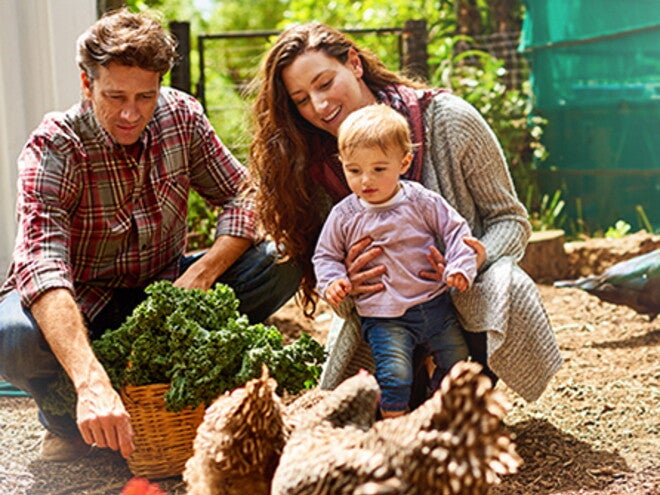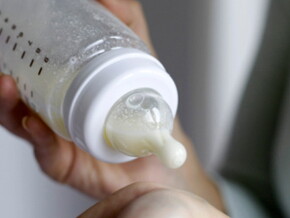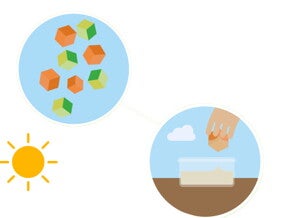
- Buy from local suppliers
Shopping at a farmers’ market or farm shop can be rewarding as you are buying from the very people who grew your produce or raised your meat. Parents who shop from suppliers they know and trust in the local area are reassured that they are able to trace the journey their food has made from farm to fork. They also like that they are doing their part to support the local economy and cut down on carbon emissions from transporting food from far-away countries. - Choose organic where possible
Some parents prefer to buy baby organic produce because organic farming methods use fewer pesticides and have higher animal welfare standards than conventional farming. Crop rotation is always used by organic farmers to try to naturally sustain nutrients in the soil. Many parents who buy organic food believe these farming methods have a positive impact on the nutritional content and taste of the fruits and vegetables their babies eat. Moms who buy organic baby foods may get peace of mind from the very strict procedures followed by some baby food manufacturers. These guarantee the quality and safety of their products as their foods undergo up to 100 separate checks. Their products are also made without preservatives, flavour enhancers, chemical dyes, and with limited added sugar and salt. - Understand labels
Animal welfare is becoming a bigger concern for some parents. By becoming more familiar with food labels, it is getting easier to make more environmentally friendly choices at the grocery store. It’s often possible to look for labels that highlight animal welfare standards and foods that are certified as organic or sustainable. Labels vary greatly across countries, so try to research your own country’s official codes, labels, and standards so you know what to look out for when shopping. - Shop in season
More parents are starting to identify which fruits and vegetables are grown and harvested at which times of year in their local area, and are shopping to make the most of those in season. As well as cutting down on the carbon emissions it takes to transport out-of-season vegetables grown far away, in-season produce also tends to cost less and be fresher. - Walk to the shops and bring a grocery bag along
Parents who are looking to get more active often choose to walk to the market or shops rather than use a car or jumping on a bus. It counts as healthy physical activity for them and their baby, and is the most environmentally friendly form of transport we have! Another simple eco -swap is to take your own bags with you when you shop—whether that’s reusing plastic bags or using a basket or cloth shopping bags. It’s an easy way to cut down on the amount of plastic you use. How much of an eco-shopper are you? Small changes make a huge impact, so why not try one of these tips the next time you head out to buy food for your family.
Source
Mie A, Andersen HR, Gunnarsson S et al. Human health implications of organic food and organic agriculture: a comprehensive review. Environ Health 2017; 16(1):111 doi:10.1186/s12940-017-0315-4
Reganold JP, Wachter JM. Organic agriculture in the twenty-first century. Nat Plants 2016; 2:doi:10.1038/nplants.2015.221
https://www.ifoam.bio/en/our-library/organic-basics (Accessed April 9 2018)





















